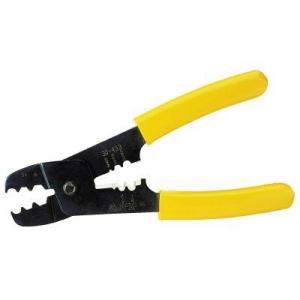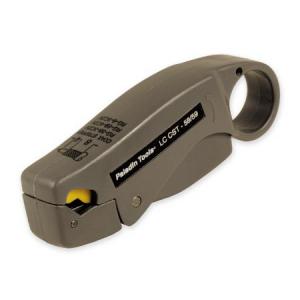I'm on a personal crusade against the
crimp/strip tool shown in the first post, because it is far too thin to effectively
crimp any kind of
connector. You end up with a very ugly
crimp that looks like the
connector is mashed, and it is mechanically weak. To properly
crimp "hex" style F connectors you should get a tool like this : . They are not much more expensive but far more effective on a greater range of hex style F connectors.
I however have jumped on the compression-seal bandwagon. I use a ripley combination compression sealer that will work for a
broad range of
connector sizes including
BNC and some
RCA connectors on a variety of
coax sizes. The tool is pricey, however, weighing in at around $75. Radial compression fittings maintain better
impedance than hex
crimp, are a stronger mechanical connection and repel the elements better if you're in a situation where connectors are outdoors (cable TV distribution). I have found that compression equipment is becoming so mainstream that even Home Depot and Lowes are carrying fittings and sealers now at fairly reasonable prices if you're only making occasional cables.
As for strippers a really cheap
coax "ringer" will save you much time and aggravation. I use this one which cost me $8 : . You can't see in the picture but the blade that strips the inner
conductor has a square shaped nick out of it that allows the center
conductor to slip into the nick and allow the outer stripper to strip the
jacket if the
jacket is thicker, making the strip tool more universal through a range of RG-59 and RG-6 including quad
shield. Look for strip tools with this simple feature. I will try and get a shot of it if I bring my kit home tonight.










